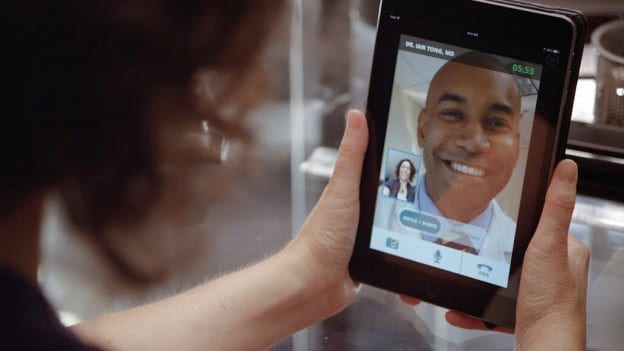One in four people in the entire world will be affected by mental illness or neurological disorders at some point in their lives – World Health Organization (WHO)
Yes, let that sink in.
With mental health affecting the lives of millions, and individuals not seeking help due to the associated stigma, it also remains one of the most neglected diseases.
There’s nothing better than constant support for individuals who face mental health challenges. So, today I bring a curated list of 8 resources that will be by your side 24*7 and help you to the best of their abilities.
8 apps for mental health
- Headspace – Meditation and sound sleep are known to help in times of mental distress. Headspace is an app for both. It is a meditation and sleep app – your personal guide to mental fulfillment. It teaches and helps you to focus, calm down, and most importantly, be mindful of your breathing. All you need is to give it a few minutes of your day, and you’ll begin to experience a stress-free and happier life. Whether you need instant stress-relief or want to relax and sleep soundly at night, headspace can prove to be your perfect partner.
- InnerHour – InnerHour offers tools to create a happier and healthier life for you:
- The app provides six self-help courses to manage depression, relieve anxiety, sleep soundly, control stress, channel anger, and experience happiness.
- It also helps you with personalized 4-week plans after identifying your unique mental health needs. These plans involve self-care activities, setting goals and tracking them, tracking your mood, and exclusive informative resources from InnerHour.
- Not only this, they support you with Allie – a relief chatbot – that identifies your state of mental health at a particular moment and provides you with simple and effective solutions to the same.
- InnerHour has qualified therapists, too, for counseling and professional support for your mental health.
- Youper – Youper leverages artificial intelligence to support you. It banks on strategies such as cognitive behavioral therapy, acceptance and commitment therapy, mindfulness, and other scientific approaches. All you need to do is open the app in time of mental distress and talk to your emotional health assistant. Meaningful conversations can work wonders and Youper serves you with that. Over time, these conversations create a sound base for you to learn more and understand your own self better, overcome stress, depression, and anxiety, build relationships and manage your emotional health – better than ever before.
- Happify – Happify spreads the belief that happiness isn’t one thing, it’s everything. It uses science-based activities and games to help you overcome mental distress. These activities and games provide effective tools and programs to manage and enhance your emotional well-being. The app extends support through 30+ tracks, some of them being – conquering negative thoughts, building self-confidence, coping better with stress, etc. The New York Times says that Happify’s tracks contain bite-size quizzes, activities, and games that guide you to seeing more positive aspects of daily life.
- T2 Mood Tracker – This app is created to track your mood or emotional experience as we may call it over a period of time. You can then share this information with your healthcare provider. The app primarily comes with mental health difficulty options among which you can choose your current state. These options are anxiety, depression, general well-being, head injury, post-traumatic stress, and stress. All of these come with a pain scale wherein you can use sliders to indicate the intensity of mental distress. T2 tracker then automatically puts your inputs into graphs. You can also make detailed notes of what affected your mood during the day. This helps in better evaluation by the healthcare provider. The best feature of this app is that it can generate reports, which can easily be emailed to your healthcare provider.
- BetterHelp – When dealing with mental health challenges, it can get difficult to physically visit therapists even when you know it’s for your good. BetterHelp comes with a solution for this. It brings over 3000 licensed therapists and counselors online whom you can consult from the convenience of your home. These professionals can help you with fighting stress, dealing with depression, panic and anxiety attacks, obsessive-compulsive disorders, bipolar and mood disorders, post-traumatic stress disorder and social anxiety. On BetterHelp, you and your counselor get a safe virtual space called ‘room’. You can access this space any time of the day and use it to ask questions, share how you feel, any kind of stress going on in your life, the challenges you’re facing – anything and everything. Your counselor will then respond with guidance, feedback, and insights.
- Stop Breathe Think – The SBT app asks you to stop for a while, breathe, and ask yourself how you are feeling and what you are thinking. As you check-in with your emotions on the app, it recommends daily meditation and mindfulness, based on how you feel on that particular day. The personalized mental health coach guides you on these topics – morning meditation, mindful breathing, stress busters, taming your anxiety, sleeping soundly, strengthening focus, managing depression, meditation when you’re commuting, and mindfulness for college students.
- Breathe2Relax – Mindful breathing is known to relax our mind and body. And Breathe2Relax is a stress management tool to facilitate the same. The app provides detailed information on how stress affects your body and well-being, and practice exercises for you to learn stress management techniques like diaphragmatic breathing. This kind of breathing is known to fight stress, stabilize mood, control anger, and manage anxiety. So, you can use this as a tool for stress reduction – all on your own or in care of a healthcare provider.
Conclusion
I would like to conclude this with the words of Dr. Gro Harlem Brundtland, (Director-General of WHO) – “Mental illness is not a personal failure. In fact, if there is a failure, it is to be found in the way we have responded to people with mental and brain disorders.”
The aforementioned apps are the best on the internet right now. But we can always do better and improve to make our community a healthier and happier space. And for that, we’ll need innovative ways and solutions for mental health apps.

Image Courtesy: Space-O Technologies
The opinions and views expressed in this guest blog do not necessarily reflect those of www.rtor.org or its sponsor, Laurel House, Inc. The author and www.rtor.org have no affiliations with any products or services mentioned in this article or linked to herein.
Recommended for You
- How a Health Cleanse Can Reset Your Body and Mind - April 16, 2025
- The Truth about Relapse in Addiction Recovery - April 14, 2025
- The Power of Peer Support in Mental Health Recovery - April 10, 2025






Hi there ! Personally, I think that these apps sound very useful. I haven’t checked them out yet but I’m sure people everywhere would find them to be helpful and the apps would make a positive change in someone’s life.
The app provides six self-help courses to manage depression, relieve anxiety, sleep soundly, control stress, channel anger, and experience happiness.
Hi Sourodip, Good information buddy. Mental illness is so common issue nowadays and its good if we have information from where we can get the help. Thanks for sharing the list of apps that can help people having illness. Your one step can help a lot of people. Great post.